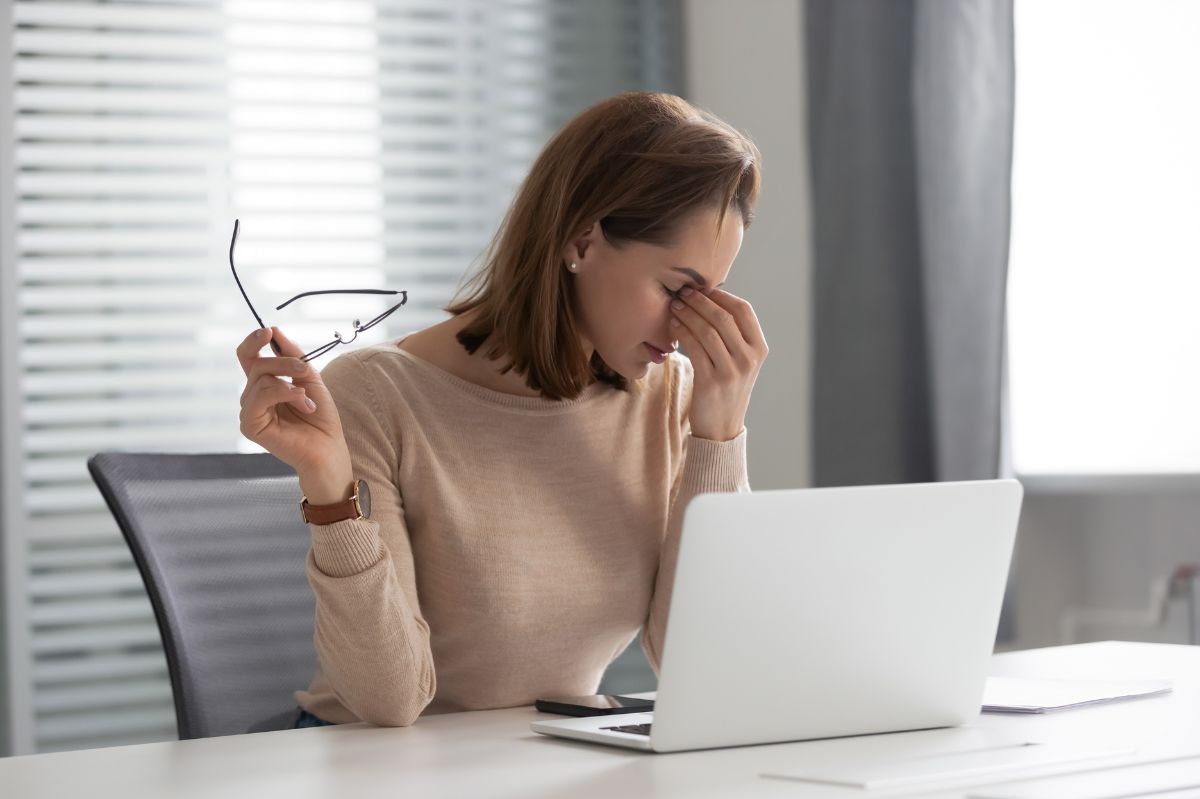Screen Fatigue, Wobbling eyelid, fingers constantly quivering, stiff nape, tired back, legs without energy. Technology is at our service; it cannot become the master. How to make an order between the tool we use and our body
The body hardly recognizes the environment if daily life is already far from green spaces. It must adapt to a series of parameters that have become habitual but do not belong to what lives there. Think for a moment about the idea of walking not only with shoes that close possibilities to the toes but on a surface that is always smooth, like that of asphalt. The adaptive capacity of movement is not very stimulated, and we get lazy, and wrong postures are predicted.
Have you ever tried to stand in front of the computer when the body requires something else? For example, in the very early hours of the morning, we are not speaking only of a postural forcing but also of an overload of stimuli that all arrive suddenly. A window opens, another pop-up is immediately gone, and another voice calls us elsewhere, like the sirens of Ulysses.
Face to face with screen fatigue
They call it screen fatigue, and, ironically, I’m talking about it through an article that, if read, will be read on the web. So I try to make it a little constructive. Be with me.
First, we don’t go on reading if we don’t straighten our backs and take a good inhale of all the possibilities of our ribcage. Don’t look at the screen as you exhale. Also, knock out with a sound. If needed, even from the mouth. Then throw out.
Let’s go on with valuable data regarding the relationship between screen fatigue and sleep-wake rhythm.
Technological fatigue and sleep-wake rhythm
Screen fatigue does not lead to not sleeping (in some cases, this possibility is also true), but the real effect directly affects sleep quality. According to data from the Sleep Center of the San Raffaele Hospital in Milan, about 30% of Italians have insomnia. Let’s not be alarmed (otherwise, the diaphragm suffers). Indeed, we take another deep breath to remind ourselves that we are alive and sorry if it is little. Let’s see the consequences of sleep whose quality is low:
- Bad memory;
- Difficulty in communicating;
- Headache;
- Weight gain.
It seems that, if in 2003 Italians slept an average of 8 hours a night, now the estimate has dropped to just under 7. For those of you who feel called into question, it might be a good idea, rather than not be further alarmed, to introduce yourself to the world of Bach flowers for insomnia, recommended by a good herbalist. Even approaching the world of meditation is an excellent way to find sleep with the right quality, which is not necessarily the same for everyone; we remember that the number of hours slept is a very secret parameter; in the same way, the quality depends on factors that are relevant for some, negligible for others (the presence of a nearby person in the night, the type of mattress, the surrounding environment, considered background noises and sounds, etc.).
300,000 would be Italians between 40-50 years of age and adolescents suffering from chronic fatigue symptoms.
These figures are alarming for those who hit the road when the sun has already set: the road death rate has risen in recent years due to drivers’ sleepiness.
If you want to deepen the topic, we recommend a text, “Tired but wired,” written by the London-based Dr. Nerina Ramlakahan.
After dinner, tonight, give up on Facebook. If time permits, go for a walk. And if you have a smartphone, leave it at home.
Also Read : Children And Adults In The Game Of Life

